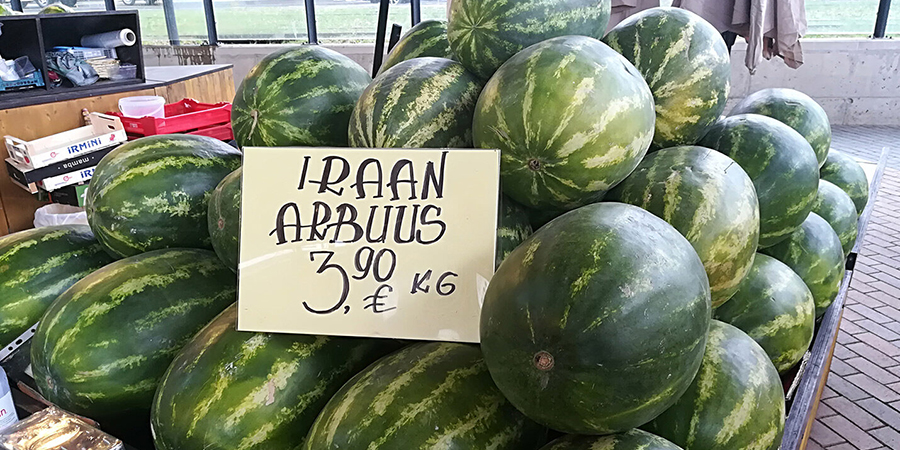
Millions of people all around the world enjoy the refreshing fruit watermelon. It is a well-liked summer fruit, especially in hot and humid areas, due to its juicy, sweet, and crisp flesh. To cater consumer demand around the world, watermelon is grown in great quantities and is a fruit that is heavily traded globally.
Top Producers
Watermelons are grown in many countries all over the globe, China, Turkey, Iran, Brazil, and Egypt are the biggest producers. These countries produce the majority of the world’s watermelons and have the resources, climatic conditions, and believe to cultivate significant quantities of the fruit. Watermelon is produced most extensively in China, Turkey, and Iran.
Top Exporters
Spain, the Netherlands, and Mexico are the leading countries exporting watermelon. These countries have built the required infrastructure to transport watermelons over long distances without compromising their quality and have established trading lines with other regions of the world.
Top Brands
Del Monte, Dole, Chiquita, and Fresh Del Monte are just a few of the many companies that sell watermelon around the world. In order to satisfy client demand, these well-known brands provide watermelons of the highest calibre.
Top Importers
The United States, Canada, Japan, the United Kingdom, and Germany are the biggest importers of watermelon. To accommodate consumer demand, particularly in the summer, these countries import a significant amount of watermelon.
Challenges
Weather, pests and illnesses, transportation, and trade barriers are some challenges to watermelon production globally. Watermelon production may be impacted by drought and extreme weather, which could result in shortages and higher costs. Crops of watermelon can suffer quality loss and damage from pests and diseases like fusarium wilt and powdery mildew. Since watermelons are delicate fruits that must be handled carefully during shipping, transportation can also be difficult. Watermelon trade internationally may be impacted by trade restrictions like taxes and quotas that prevent access to specific markets.
Ecological Aspects
The cultivation of watermelons has an impact on the environment, particularly in terms of water use and pesticide usage. Because it requires a lot of water to grow, watermelon can cause a water shortage in areas with scarce water supplies. In order to manage pests and illnesses, pesticides are also used for the cultivation of watermelons, but if applied improperly, they can have a negative impact on both the environment and human health.
In conclusion, a variety of parties, including producers, exporters, importers, and consumers, are involved in the global trade of watermelons. Although being a widely consumed fruit, watermelon production and commerce are affected by a number of factors, including weather, pests and illnesses, transportation, and trade obstacles. To ensure ethical and sustainable business operations, it is also necessary to consider the ecological aspects of watermelon production, such as optimum water use and pesticide use.